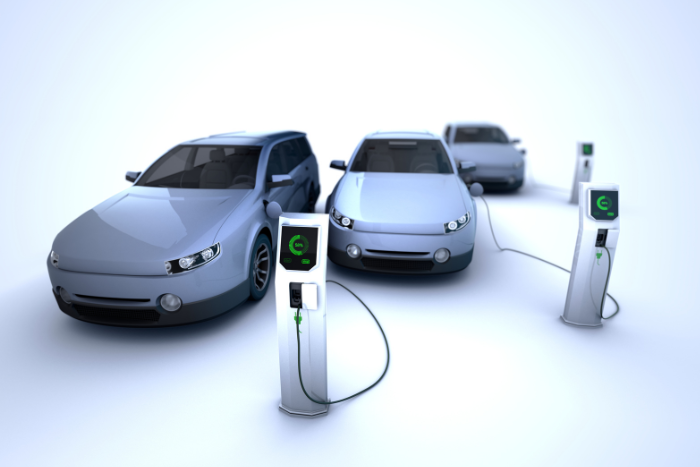According to a report in the Economic Times, the Centre plans to initiate recovery of wrongly claimed subsidies by electric vehicle makers under FAME II. The scheme, which cost ₹10,000 crores, was specifically designed to encourage local manufacturing and the use of transportation options without tailpipe emissions. The Ministry of Heavy Industries (MHI) has started the process to determine the amount of subsidies utilised by producers who failed to adhere to the required level of localization for receiving financial benefits under the programme.
In 2022, the MHI received complaints about misappropriation of subsidies by some EV manufacturers. Consequently, the ministry stopped disbursing subsidies to EV makers, pending investigation. This has led to a build-up of subsidy amounts that original equipment manufacturers (OEMs) are seeking from the Centre, claiming that EVs have already been sold to end consumers at a discount. According to the Society of Manufacturers of Electric Vehicles (SMEV), the MHI has withheld ₹1,100 crore of subsidy that is due to OEMs while EV makers claimed that the decision to withhold subsidies is affecting their operations.
EV manufacturers seek subsidy extension under FAME-II in Budget
In its pre-Budget recommendations, the Society of Manufacturers of Electric Vehicles (SMEV) sought extension of subsidies for EVs under the FAME II scheme. In order to boost electric mobility, the industry organisation also suggested including light to heavy commercial vehicles in it and called for a consistent 5 percent GST on spare components for electric vehicles. SMEV said that the extension is needed as the subsidy is yet to meet the penetration it was supposed to catalyse. For now, the validity of FAME II expires on March 31, 2024. Rather than being time-based, the new FAME II scheme should be linked to e-mobility conversion, the SMEV added.
Pointing out that trucks account for over 40% of the country’s fuel consumption and GHG emissions across the road transport sector, the body urged inclusion of light commercial vehicles (LCV) and medium and heavy commercial vehicles (M&HCV) on a project-mode basis. Also, SMEV asked the government to consider reducing the basic customs duty on cells to zero until these are manufactured in India, citing that Lithium-ion cell manufacturing in the country is still at a nascent stage.
E-bus tender costing 29 % lower than diesel buses
Prices discovered for electric buses under the National Electric Bus Programme (NEBP) were found to be 29% less than those for diesel buses. Convergence Energy Services Ltd., a state-owned company and a fully-owned subsidiary of Energy Efficiency Services Ltd. (EESL), made the claim after studying price discoveries for 6,465 electric buses which were part of the first NEBP tender. Six Indian states and union territories including Delhi, Telangana, Haryana, Surat (Gujarat), Kerala, and Arunachal Pradesh represented this single tender demanding E-buses.
The lowest price for a 12-meter bus was found to be ₹54.3/km for intra-city travel and ₹39.8/km for intercity travel. The price found was ₹54.46/km for a 9-meter bus and ₹61.92/km for a 7-meter bus. Over a twelve-year period, it is anticipated that the buses will travel about 5,718 million kilometres and conserve 1,842 million litres of fossil fuel. As a result, 4.62 million tonnes of CO2e will be released from tailpipes, which is a significant step in the direction of climate change mitigation. This tender is a part of the .The central government’s goal is to put 50,000 electric buses on the roads over the next three years.
Central government releases tender for 4,675 E-buses
A tender for the purchase, supply, and maintenance of 4,675 electric buses has been released by Convergence Energy Services (CESL), a fully owned subsidiary of Energy Efficiency Services (EESL). Reportedly, the National E-Bus Program (NEBP) Phase II construction of allied electric and civil infrastructure is also included in the tender’s terms.
Original equipment manufacturers (OEMs), operating subsidiaries of OEMs, financial aggregators, or operators who are unrelated to OEMs must be among the bidders taking part in the process. The tender stated that at least 25 e-buses or 1,000 CNG buses must have been produced and delivered in India or elsewhere by the OEMs or their subsidiaries participating in the tender as a single bidder or as a member of a consortium. The deadline for submitting bids is February 20, 2023.
About The Author
You may also like
New report shows ways to build an efficient e-bus ecosystem in India
Corporate watchdog accuses Toyota of misleading marketing, greenwashing
Electrifying India’s Roads: Financing EVs – Challenges, Progress and the Road Ahead
Five lithium and cobalt mines identified in overseas exploration
India approves $7 billion plan for 10,000 electric buses in 169 cities in next 10 years


